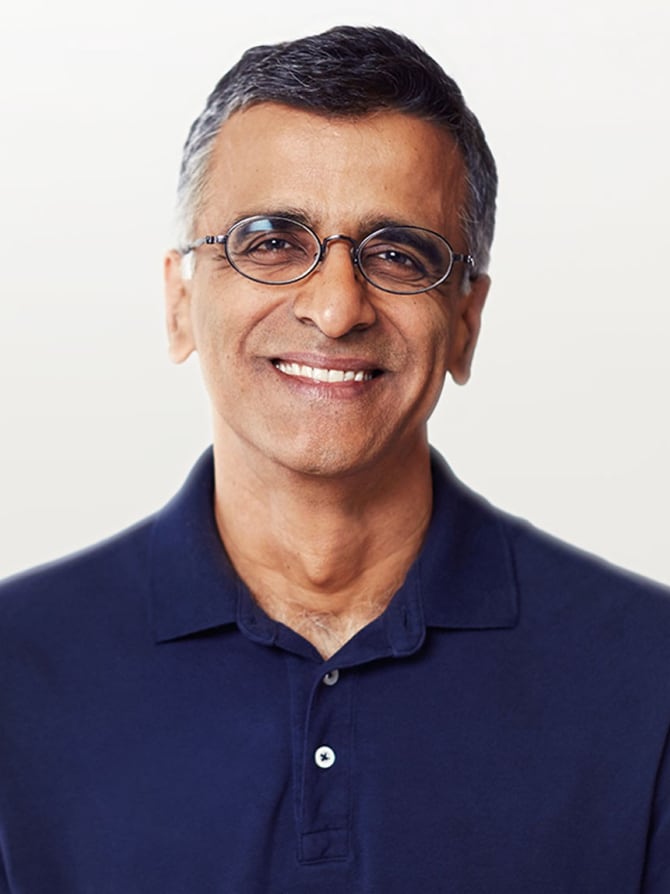Neeva: An ad-free search engine that doesn’t sell personal data. But you pay
“We believe that advertising-funded search engines will be inherently biased towards the advertisers and away from the needs of consumers.” These words baptized the birth of Google, the world’s most famous search engine, towards the end of the nineties. Only in a short time did the two co-founders, Larry Page and Sergey Brin, change their minds by designing a perfect system to profile, please advertisers, and ensure staggering revenues. To get an idea, it’s enough to know that in the last quarter of 2021 alone, Google Search generated over $43 billion in revenue. An integral part of the mechanism developed by Google was Sridhar Ramaswamy, an American engineer of Indian origin who was dissatisfied with the drift undertaken by the mechanism he had helped to create. The spread of tracking systems and the undisputed priority of advertising did not suit him anymore because the fruits of such a model ended up in the pockets of companies that had become unreachable giants for their competitors, while users were deprived of their data but unknowingly happy to find immediate and free answers to their doubts thanks to Google.
After almost 15 years spent at the top of the Ads division at Big G, Ramaswamy decided to abandon the cruise ship to go out to sea with a small boat and try to start from scratch with a search engine without advertising not based on the exploitation of user data. That is, on the profiling of the latter to sell individual information packages tailored to advertisers on the hunt for customers. From this reasoning that Ramaswamy shared with Vivek Raghunathan, former Vice President of Monetization at YouTube, in 2017 took its first steps Neeva, a search engine that provides the best results based on requests without taking into account the sites visited previously because, without cookies, there is no tracking.
With a business model opposite to that on which the foundations of the internet dominated by giants like Google and Facebook rest (free services in exchange for personal data), Neeva supports itself with subscriptions and relies on the promise it makes to users: no data is shared or sold to the third party. Bringing people closer to a new reality means having to break the usual and daily relationship of users with Google, so after an initial availability only on payment, Neeva is now available in a freemium mode: you can sign up for free to try the service, but it is limited to 60 queries per month. A model is proving to be successful since, according to data released by the same company, those who use the service continuously tend to return and pay the fee.


The subscription to Neeva Premium, available only in the US with the iOS app (the Android app will come later) and a browser extension compatible with Chrome, Edge, Safari, Firefox, and Brave, is $4.95 per month or $49.95 per year. It provides access to all search and customization features, such as integration with Slack, Gmail, Dropbox, and Github personal accounts. Also included in the price are subscriptions to some of the most effective personal data protection tools, such as LastPass Premium Password Manager and Bitdefender Premium VPN. But there is more because subscribers are entitled to online meetings with some of the company’s managers to get a preview of the new features added to the service and even the possibility of getting an NFT tied to the company.
Another distinctive feature of Neeva is the search history limited to 90 days, with data useful for fully automated queries that are deleted after the deadline expires without leaving a trace on the company’s servers. However, by connecting external data sources such as Office 365 and G Suite, data with personal details will be processed to show the most relevant search results. In addition to privacy, Neeva also ensures data security by diversifying tests to check for possible vulnerabilities in internal systems.
To keep faith in the contract Neeva makes with users, Ramaswamy and Raghunathan have created the Digital Bill of Rights, an updated version dedicated to internet services. Free or paid, it makes no difference because the principles are sacred: online privacy, reasonable data collection and controls, knowing how your data is used, data ownership, and portability. A little more than two years after the start of operations and with $77.5 million obtained from various investors, Neeva counts more than 50,000 users. Most of them, however, are insiders and experts in digital rights, cybersecurity, consulting, and innovation, categories that have a greater awareness of the importance of protecting personal data than the use and exploitation operated by almost all digital platforms.

Emerging in Google’s ocean is very difficult for Neeva, as demonstrated by the many negative precedents of those who have tried to offer an alternative to the queen of online searches. The exploit of DuckDuckGo lasted very little. Qwant had to scale back its ambitions, and even Bing struggled to become a real competitor of Big G, despite the massive investments of Microsoft.
The biggest obstacle for Neeva is to make people understand the value of personal data and its supremacy over the opportunity to have a free service: an easy concept, however, to understand, because as a rule of the internet teaches, what is free is paid for with the concession of personal data. Aware of the task that awaits them, the two founders of Neeva remain optimistic about the future, hoping that the evolution of online services can replicate what has happened with the growth of the television market.
From a few short commercials to the invasion of advertising that produced constant interruptions to programs, video-streaming services and giants like Netflix were born. As hard as it is to predict a collapse of Google, which from 2023 will no longer support third-party cookies, the spread of a search engine that looks to users and not advertisers would be suitable for everyone.



